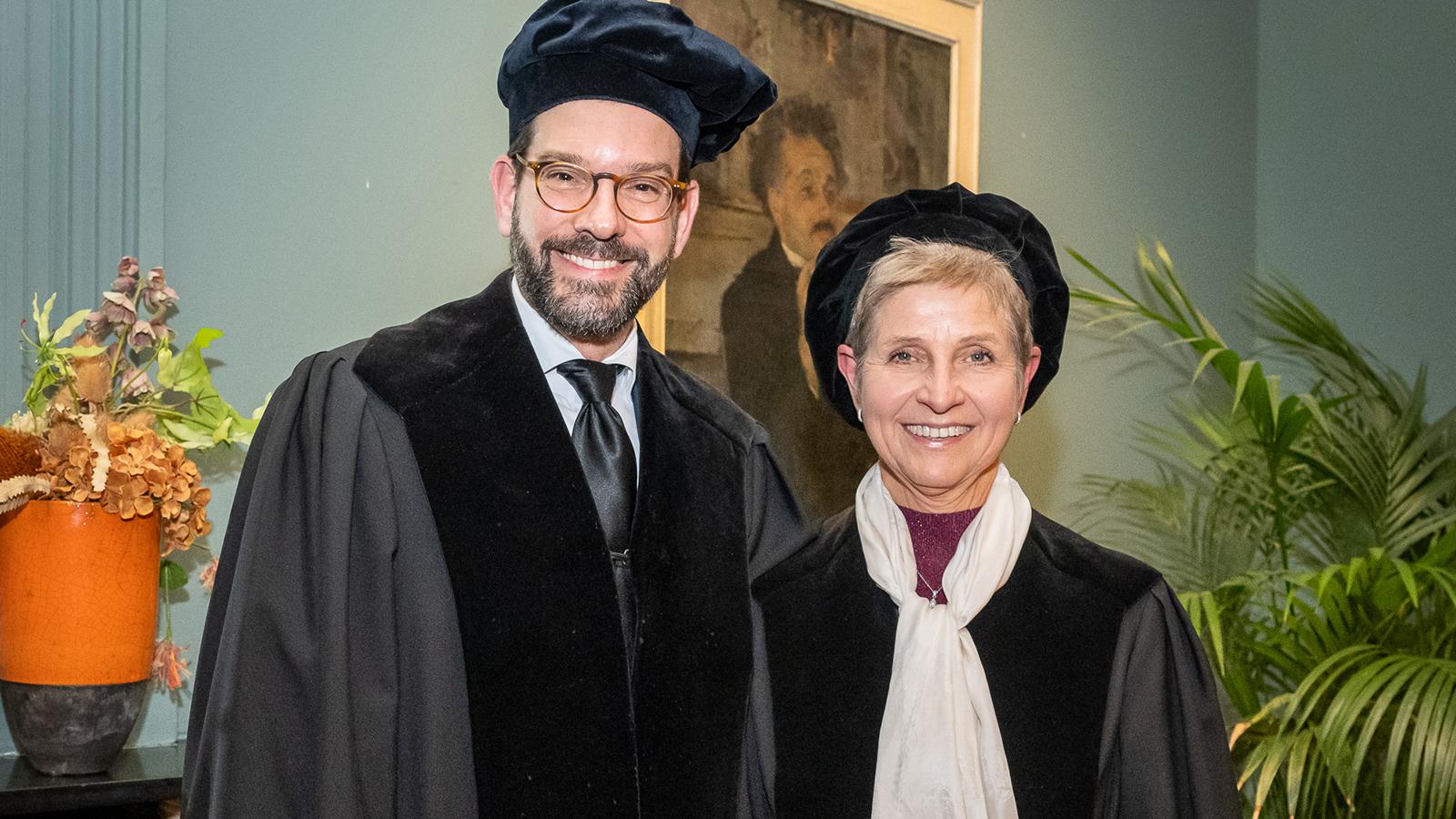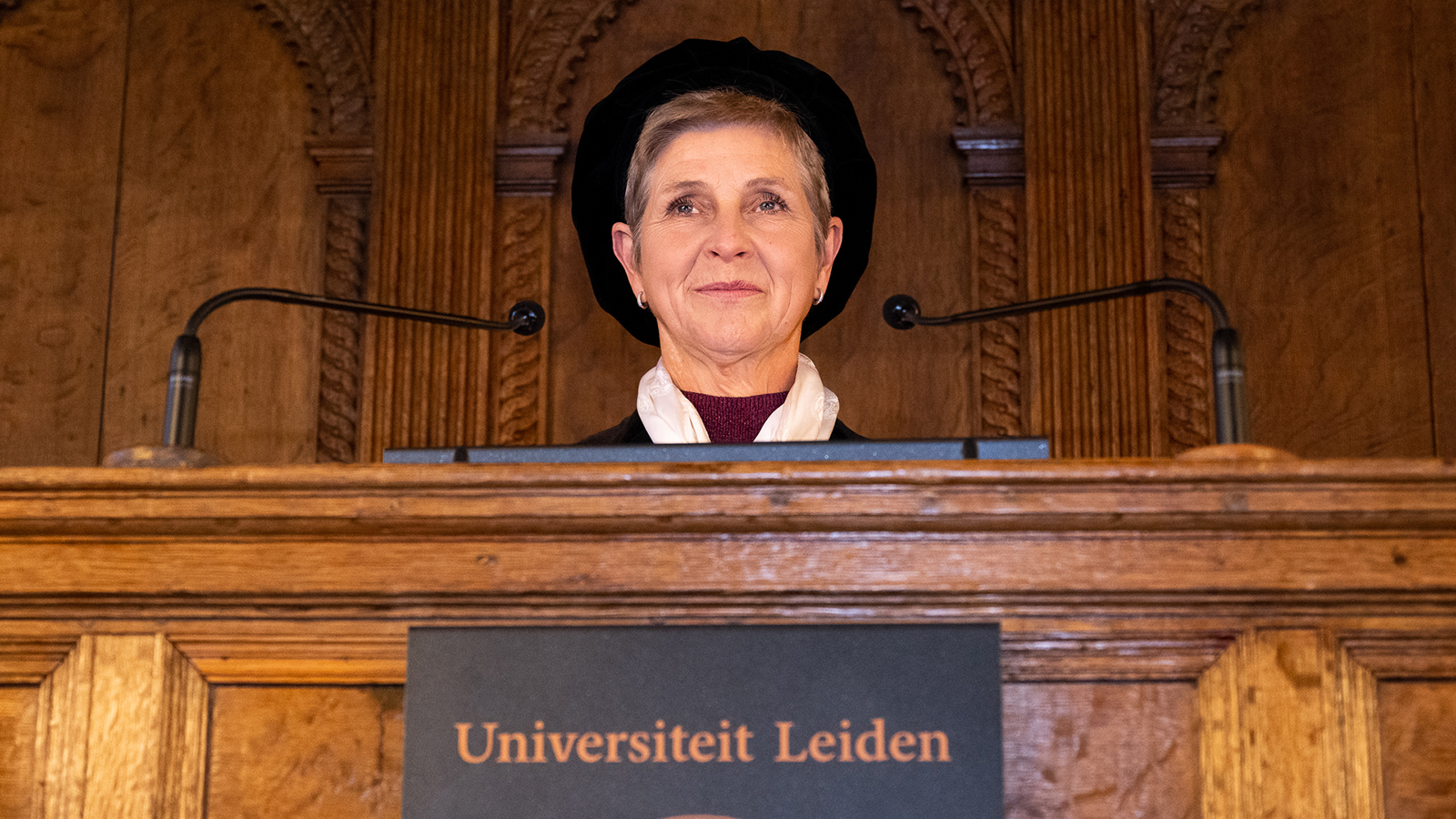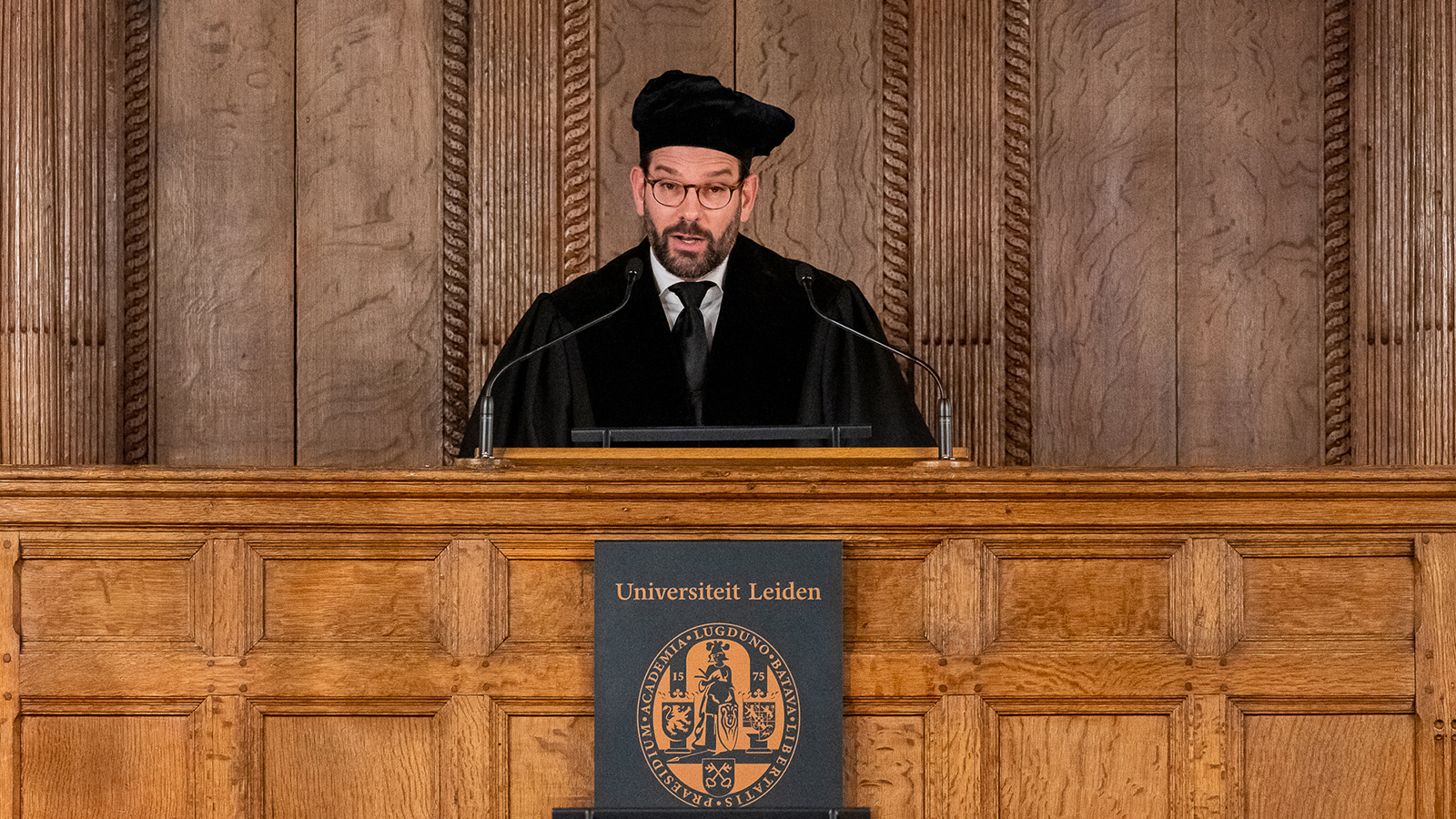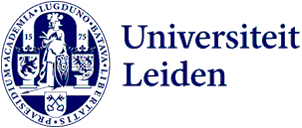
Our government should be more resilient
A fragmented political landscape, permanent pressure from current affairs and an increasingly political civil service: our government faces many challenges. This makes it all the more difficult to make important decisions about pensions or the climate. Research and good education can help meet the challenges in public administration, say professors by special appointment Anchrit Wille and Caspar van den Berg.
Since November 2021 they have held the Transitions in the Public Sector chair, which was endowed by CAOP, a knowledge centre focusing on issues in education, healthcare and government. Wille and Van den Berg both gave their inaugural lectures on 21 November.
Pre-inaugural-lecture nerves
Both professors felt a bit nervous before the joint inaugural lecture because they deliberately hadn’t shared their texts with each other. Wille: ‘I did wonder whether it would be bad if they contained different conclusions. But that is what academia is all about, so it wouldn’t be a problem anyway.’ Van den Berg was a bit worried about any overlap, he laughs. ‘I was going on second so if there was any repetition that would have been more of a problem for me. But at that point, you’re there with your printed text in the auditorium and there’s nothing you can do about it anyway.’
-

The two professors by special appointment / CAOP -

Anchrit Wille / CAOP -

Caspar van den Berg / CAOP
Castle in the air
There proved to be no reason to worry anyway because although they both quoted Max Weber, their focus lay on different theories by the German political sociologist. Wille spoke about the primacy of politics, the principle that in a democracy, elected politicians make important decisions, not civil servants, lobbyists or particular experts. But, among others, the fickle voter, the fragmented political landscape and a crumbling civil service mean that ‘the primacy of politics has become a castle in the air. Politics is the boss but at the same time no one is the boss,’ says Wille.
'‘If we want to keep everything together, the Dutch government will have to perform at a Champions League level.’ - Caspar van den Berg
Van den Berg focused on Weber’s bureaucracy theory. The current civil service, says Van den Berg, sometimes swings too far towards political-strategic rationality, and specialist expertise is also under threat. The child benefits scandal, the nitrogen crisis and the housing shortage: the government often fails to deliver on its promises and has consequently lost its ‘robustness’. This too is responsible for a drop in confidence. Van den Berg therefore calls for an apolitical and competent apparatus of state, and for an increased emphasis once again on legal guarantees within the civil service. ‘If we want to keep everything together, the Dutch government will have to perform at a Champions League level.’
According to him not only the political arena but also the interaction between politics and the civil service is under great pressure. ‘It is time to be vigilant. We have pay close attention to the direction we are taking.’ Wille can also see an imbalance. ‘On the one hand, we want to give citizens more say in politics but at the same time politics wants to keep a firm hold on the reins so that policy can be implemented.’
Lectures from leading lights in The Hague
Academics can help analyse this imbalance in public administration, says Wille, and the joint chair in Transitions in the Public Sector can help. The two professors see it as their job to ensure that political science and public administration insights trickle down to the political and administrative arena. At the same time academia should listen better to the needs within this arena. How students are taught can already help. ‘The good thing about teaching in The Hague is that it is easier to get leading lights in The Hague into the lecture hall as guest speakers. The theory is important but students should also be able to link these theoretical insights with real-life events,’ says Van den Berg.
‘Casper is the embodiment of the link between academia and the practice of government’ - Anchrit Wille
Will and Van den Berg have shared their chair for over a year already and in the more distant past they also shared an office on Schouwburgstraat in The Hague. ‘We got to know each other really well at the time so we know what to expect of each other,’ Wille jokes. Van den Berg nods: ‘In the past Anchrit has already shown that she can have a huge impact on the debate in society with her research.’
‘Caspar is a senator as well as an academic,’ says Wille. ‘He has so many contacts: in effect, he’s the embodiment of the link between academia and the practice of government.’
Text: Tim Senden
Main photo: ANP
